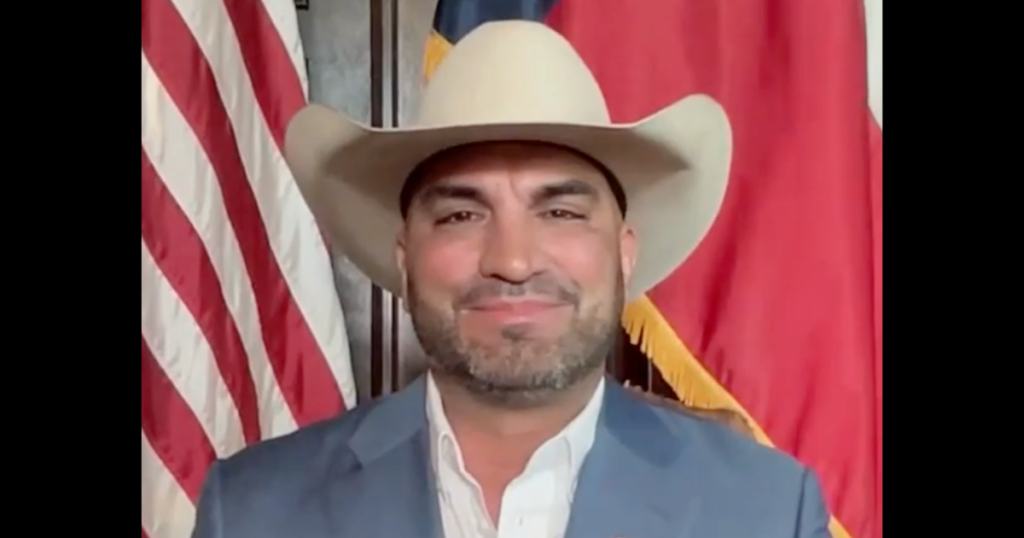Webb County, Texas, has recently witnessed a significant political shift as Judge Tano Tijerina announced his departure from the Democratic Party to join the Republican Party. Elected nearly a decade ago as a Democrat and serving as the chief executive of this border county, Tijerina’s decision reflects broader national trends alongside local sentiments. During an interview on Fox & Friends, he articulated that his choice was driven by a careful evaluation of his values and the evolving nature of the Democratic Party, which he believes has increasingly moved to the left, alienating voters with more conservative views. Tijerina expressed pride in his change, which he indicates is a return to his conservative roots rather than a mere political maneuver in response to shifting electoral trends.
In the interview, Tijerina discussed how he has witnessed the Democratic Party drift away from the values that resonate with many Texans. He emphasized that his moral compass guided him away from the party, particularly as he observed what he termed as the radicalization within national Democratic leadership. Tijerina pointed out specific issues, such as border security and the challenges faced by the oil and gas industry in South Texas, as pivotal factors contributing to his change. He emphasized the need for a stronger stance on these issues, reflecting broader concerns within his community regarding safety, economic stability, and traditional values. This perspective resonates with many living in the diverse socio-political landscape of South Texas, where local Democrats often differ significantly from their national counterparts.
Tijerina’s announcement also spurred discussions about the electoral dynamics in South Texas, where there has been a notable shift towards Republican candidates in recent elections. Ainsley Earhardt from Fox & Friends hinted at the perception that Tijerina’s shift could be linked to Donald Trump’s success in the region, claiming that conservatives were reclaiming influence in historically Democratic strongholds. Tijerina responded to these assertions by clarifying that his decision stemmed from a genuine alignment with the values he holds and the changes observed within his party, rather than merely a strategic maneuver for future electoral gain. He acknowledged that people often judge others’ actions through their own lens, reiterating his commitment to speak truthfully about his beliefs and motivations.
The implications of Tijerina’s party switch mirror the broader electoral trends witnessed in Texas, particularly during the most recent presidential election. Statistics reveal that President Donald Trump significantly improved his performance in counties near the U.S.-Mexico border, winning 14 out of the 18 counties within 20 miles of the border. This stark contrast to his previous election in which he garnered only 29% of the vote illustrates a notable transformation in voter sentiment in the region. The changing demographics and political landscape have led many expert commentators to anticipate continued shifts as conservative candidates increasingly appeal to the electorate’s concerns about border security, public safety, and economic resilience.
Amidst the backdrop of Tijerina’s announcement, critics may argue that such political realignments are opportunistic, aimed at securing electoral advantages. However, Tijerina asserts that his values have fundamentally guided his decision. He expressed a strong desire to work towards addressing essential issues affecting his community, including the implications of the ongoing border crisis and other local policies that directly impact the lives and livelihoods of Webb County residents. Tijerina’s change of party affiliation can be seen as both a personal decision and part of a wider trend that reflects a growing dissatisfaction with traditional Democratic policies, especially among more conservative constituents in South Texas.
Judge Tano Tijerina’s departure from the Democratic Party encapsulates the evolving political landscape in Webb County and South Texas as a whole. His choice reflects not only personal convictions but also an awareness of shifting dynamics at the local and national levels. As more Democrats in conservative regions choose to realign with the Republican Party in response to ideological shifts, the implications for future elections, party strategies, and community priorities will remain a key focal point in the evolving narrative of Texas politics. This changing political tide could mark a longer-term realignment in a region once viewed as a Democratic bastion, spotlighting the complexities and nuances of political identity in America today.

